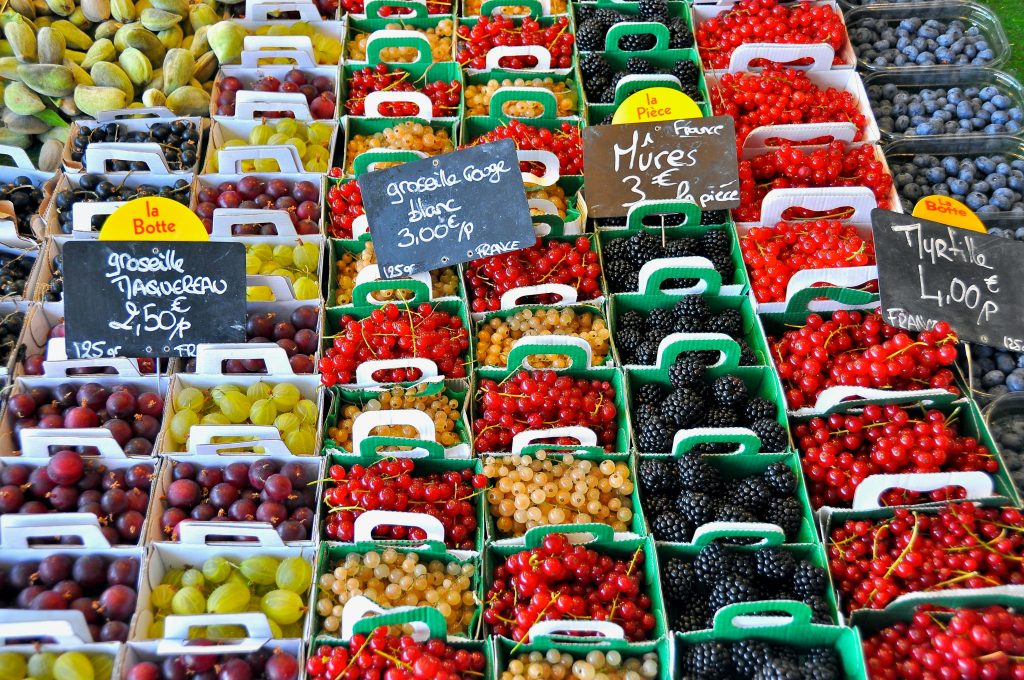Your cart is currently empty!
France Bans Supermarkets From Wasting Food, Turns Trash Into Meals for Millions

In a world where abundance and hunger coexist in uneasy tension, France has drawn a moral and legislative line. Since 2016, it has been illegal for supermarkets in the country to throw away edible food. The policy, born from public outrage and grassroots activism, transformed the simple act of shopping into an exercise in social responsibility. Supermarkets larger than 400 square meters must now donate unsold food to charities and food banks, ensuring that surplus meals reach the hungry rather than landfills. What began as a national effort to fight food waste has since evolved into a broader movement one that has redefined how France and, increasingly, other nations view waste, hunger, and the ethics of consumption.
The law owes much of its existence to Arash Derambarsh, a local councillor from Courbevoie, who was horrified by how much edible food went to waste while families struggled to eat. Derambarsh started collecting discarded supermarket food and handing it out in his neighborhood. The image of citizens lining up under supermarket lights for what others had deemed worthless became a rallying point. Within months, his petition garnered over 200,000 signatures, and the French Senate acted. The result was groundbreaking: France became the first country to criminalize food waste at the retail level. The law went beyond charity it symbolized a national reckoning with excess and indifference, a moral statement that waste and want should never coexist.
How One Campaign Sparked a Revolution
Arash Derambarsh’s activism began with empathy but quickly became a political movement. His efforts caught the attention of lawmakers, journalists, and global organizations. In 2015, as the European Parliament debated food waste measures, Derambarsh called upon European leaders to adopt similar laws across the continent. His words carried urgency: more than 89 million tonnes of food were being wasted in the EU each year, even as millions went hungry. According to The Guardian, Derambarsh challenged European Commission President Jean-Claude Juncker and national leaders directly: “They have a responsibility before history and before the 500 million people of Europe.”
Within months, France’s National Assembly and Senate voted unanimously to pass a food waste ban a rare show of political unity. The law required large supermarkets to sign formal donation agreements with charities, and it imposed fines of up to €75,000 or even prison sentences for violations.
Retailers were also forbidden from deliberately spoiling food with bleach, a practice once used to deter dumpster divers. Instead, food fit for consumption must be preserved, stored hygienically, and transferred to organizations that could redistribute it safely. For Derambarsh, it was proof that citizen activism could create systemic change.
The law’s impact was immediate and symbolic. Food banks across the country, including Banques Alimentaires France’s national network reported dramatic increases in both the quantity and quality of donations. Previously, most charity meals relied on non-perishables like pasta and canned goods. Now, donations included fresh produce, dairy, and meat. Jacques Bailet, the head of Banques Alimentaires, called the law a “positive and very important symbolic measure” that would allow charities to provide more nutritionally balanced meals. For millions who depended on these services, the change meant dignity as well as sustenance.
The Logistics of Feeding a Nation

Turning moral outrage into a functioning logistical system was no easy feat. The sudden influx of donations strained existing charity networks. Many organizations lacked cold storage facilities, refrigerated trucks, or staff to handle perishable goods. Aline Chassagnot, who manages a Paris-based food redistribution program, recalled that at first, “We suddenly had more food than ever, but not the means to store or move it.” Without efficient infrastructure, some donations risked spoiling before reaching their destinations. The challenge was clear: generosity required logistics.
The government responded with financial incentives and partnerships. Tax breaks were introduced for companies that donated food, while public grants supported the construction of refrigerated warehouses and training for volunteers in food safety. Retail giants such as Carrefour and Intermarché began collaborating directly with local charities, creating daily pickup schedules to ensure that unsold items were collected promptly. Trucks now arrive at supermarkets each morning, carrying fruits, vegetables, and dairy products to food banks before opening hours. This daily choreography has turned what was once waste management into a finely tuned network of redistribution.
The ripple effects reached beyond France’s borders. Italy introduced its own version of the law the Gadda Law in 2016, encouraging companies to donate surplus food through tax incentives rather than fines. Denmark launched waste supermarkets selling surplus goods at reduced prices, while the United Kingdom implemented voluntary donation agreements. Even non-European countries began to take notice. France’s system had shown that hunger and waste were not inevitable companions; with political will and community coordination, both could be tackled together.
France’s Anti-Waste Revolution

The success of the food waste law laid the groundwork for an even more ambitious goal the elimination of waste across industries. In 2020, France introduced a sweeping anti-waste law, which came fully into effect in 2022. This legislation made it illegal for companies to destroy unsold goods, from electronics and cosmetics to luxury clothing. The motivation was twofold: prevent unnecessary waste and promote a circular economy, where products and materials are reused or recycled rather than discarded. According to government estimates, over €650 million worth of new products were destroyed annually in France before the law.
Luxury brands and major retailers, once criticized for burning excess stock to protect exclusivity, now faced a legal and moral imperative to find sustainable alternatives. Companies were required to donate or recycle unsold goods instead of destroying them.
The fashion industry, long associated with wasteful overproduction, had to adapt quickly. Burberry’s earlier scandal in 2018 when it burned millions in unsold products served as a cautionary tale. France’s new law not only reshaped corporate behavior but also redefined public expectations of ethical production.
This anti-waste movement extended into environmental policy. The law mandated that by 2025, all plastic packaging in France must be recyclable. Single-use plastics would be phased out entirely by 2040. Fast-food restaurants were required to eliminate plastic takeaway containers by 2023, while manufacturers of cigarettes were made responsible for the proper disposal of cigarette butts. These interconnected efforts marked France as a global leader in sustainable policy a nation proving that legislation could align consumer culture with ecological ethics.
The Environmental and Ethical Impact

Food waste is not just a social issue; it is a major environmental one. Every ton of wasted food produces methane, a greenhouse gas far more potent than carbon dioxide. Globally, food waste accounts for roughly 8% of greenhouse gas emissions. By diverting edible waste from landfills, France’s law contributes directly to its climate goals. The food rescued from supermarkets not only fills plates but also reduces emissions and conserves the vast amounts of water, land, and energy used in food production.
The reform also reshaped national consciousness. Schools across France now educate students about food waste and sustainability. According to PBS NewsHour, nearly 2,700 supermarkets send near-expiry food to 80 warehouses around the country, rescuing about 46,000 tons of food each year an increase of over 20% in donations to food banks. These efforts have transformed daily habits and public attitudes, embedding sustainability into the cultural fabric.
Still, critics caution that redistribution, while noble, addresses symptoms rather than causes. Social geographer Paul Milbourne argues that supermarket-driven overproduction and consumer expectations for perfect-looking produce remain underlying problems. France’s model treats waste after it occurs, not before. Yet others see it as a necessary first step a proof of concept that change is possible. It shows how small actions, institutionalized at scale, can ripple outward to transform economies and ethics alike.
The Legacy of France’s Food Waste Law

Nearly a decade on, France’s food waste law remains a beacon for other nations. It has inspired legislative discussions in Belgium, Spain, and even South Korea, where policymakers study France’s approach as a model of practical idealism. In Belgium, officials are preparing to require supermarkets over 1,000 square meters to donate edible food, aiming to stabilize food bank supplies. Across Europe, what began as an act of national conscience has evolved into a transnational movement for food justice.
The law has also spurred innovation at the local level. Startups like Too Good To Go and Phenix, founded in France, now connect consumers with surplus food through mobile apps, letting users purchase unsold restaurant and grocery items at discounted prices. Chefs have embraced the challenge creatively, launching restaurants that specialize in “rescued” ingredients. These ventures demonstrate how moral responsibility can coexist with entrepreneurship.
At its heart, France’s policy is more than a legal framework it is a statement about values. It declares that food is not a disposable commodity but a shared resource. By transforming waste into worth, France has redefined the relationship between abundance and need. The law has not eradicated hunger, nor has it solved the complex logistics of redistribution, but it has made compassion a civic duty. In doing so, it offers a template for the world: that ethical responsibility and environmental sustainability can not only coexist but reinforce each other.

Turning Waste into Worth
France’s bold move to criminalize food waste stands as a rare blend of morality, practicality, and vision. It represents a simple yet powerful principle that food should end up on tables, not in trash bins. The law’s ripple effects have extended beyond borders, influencing environmental legislation, corporate ethics, and everyday behavior. It shows that progress need not always come from innovation; sometimes, it arises from empathy made systematic.
As Europe continues to debate its own food waste targets, and as nations worldwide struggle with the twin crises of hunger and climate change, France’s example endures as both inspiration and challenge. It asks societies everywhere to reconsider how they value food, and by extension, life itself. In transforming waste into sustenance, France has done more than feed millions it has nourished the world’s conscience.
